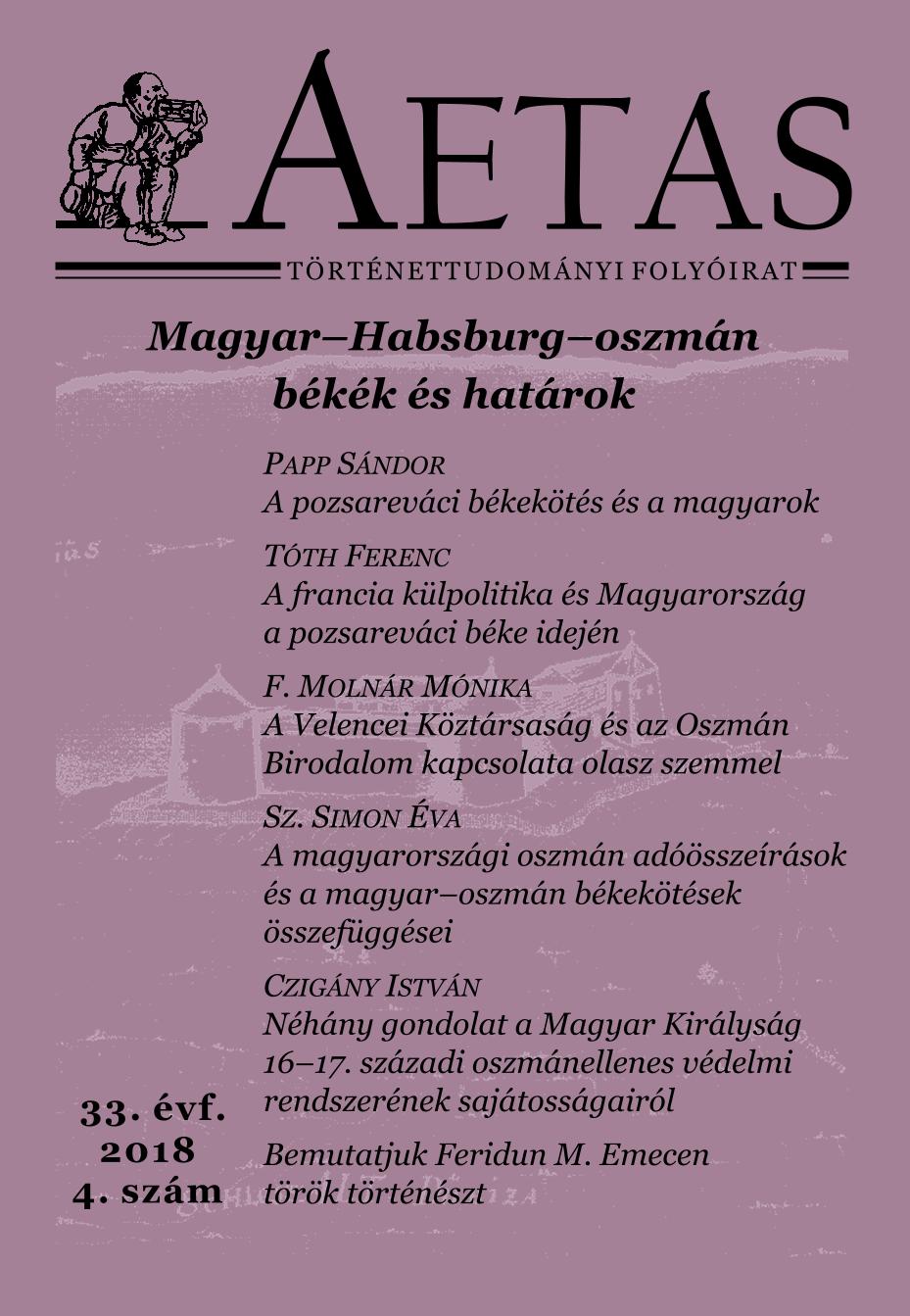A francia külpolitika és Magyarország a pozsareváci béke idején
French foreign policy and Hungary at the time of the Treaty of Passarowitz
Author(s): Ferenc TóthSubject(s): 18th Century
Published by: AETAS Könyv- és Lapkiadó Egyesület
Keywords: Francis II Rákóczi; Cardinal Alberoni; Habsburg Empire; French foreign policy
Summary/Abstract: After the defeat of the Rákóczi uprising European diplomacy went through drastic changes. Following the War of Spanish Succession, the great European powers made stronger commitments to peaceful conflict resolution and “balance of power” politics. The death of Louis XIV also caused significant changes in French foreign policy. The new French government aspired to improve French-English relations, which led to the alliance of these two great powers, and later to the creation of the Triple Alliance when the Dutch Republic joined in January 1717. The conspiracy led by Cardinal Alberoni questioned the division of the Spanish inheritance established in the peace treaty and seriously threatened peace in Europe. As a reaction the Habsburg Empire also joined to alliance in 1718, forming the Quadruple Alliance. The new European political landscape was not favorable for the continuation of the Hungarian independence movements, and the new shapers of French foreign policy did not support the Hungarians working against their legitimate ruler either. For Francis II Rákóczi, who fled to France after the Treaty of Szatmár, the reignition of the Habsburg-Ottoman war in 1716 presented a new chance to spark rebellion in Hungary. Rákóczi accepted the Sultan’s invitation in 1717 and travelled to Turkey. To the disappointment of the emigrant Hungarians, the war was near its end, and the Treaty of Passarowitz extinguished all their hopes. After this, French foreign policy treated the question of Hungarian political emigration as a primarily Ottoman issue. However, on the level of secret diplomacy they kept the fate and plans of the Hungarian emigrants under surveillance, and in certain political situations -like during states of war- sometimes they renewed their relations with Hungarian emigrant leaders through Hungarian agents in French service.
Journal: AETAS - Történettudományi folyóirat
- Issue Year: 2018
- Issue No: 4
- Page Range: 20-34
- Page Count: 15
- Language: Hungarian

